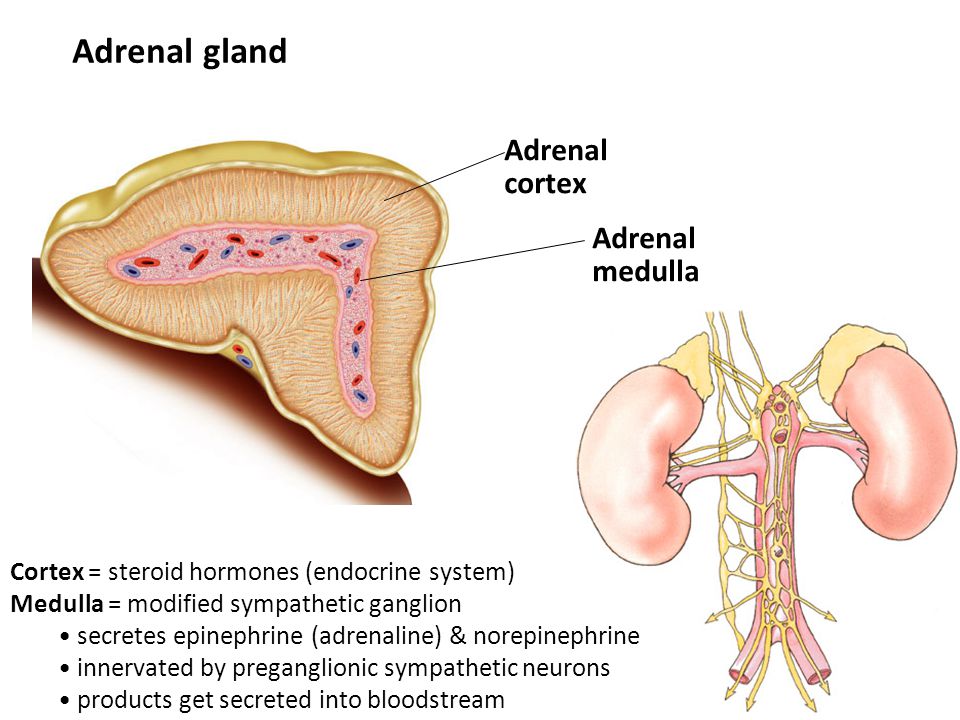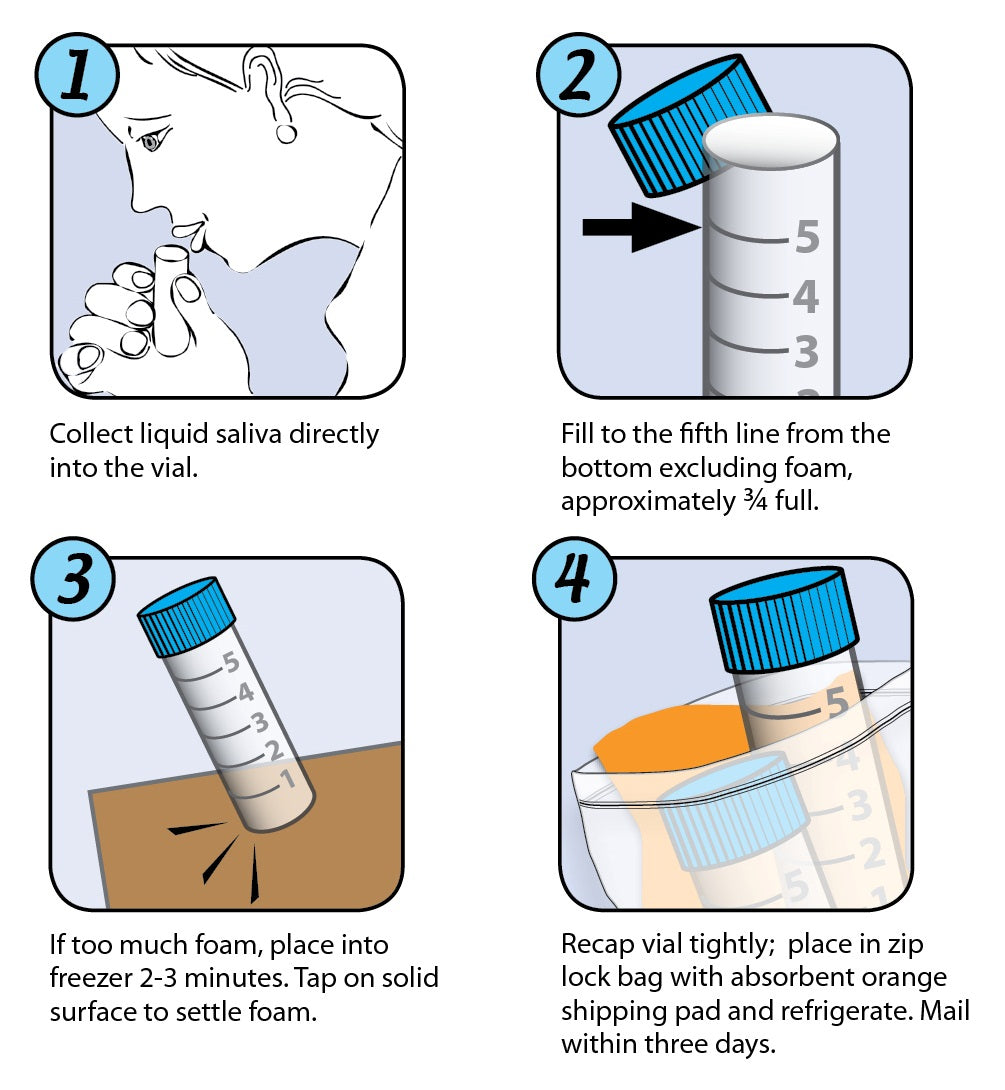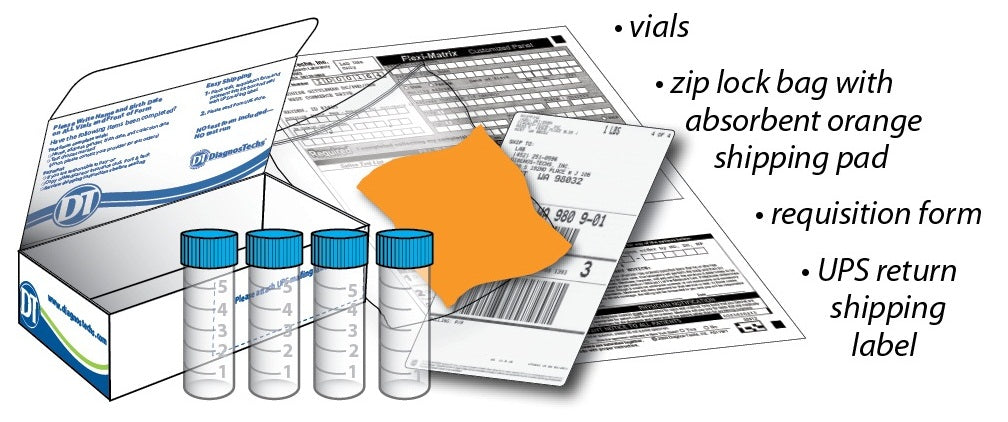Our Adrenal Stress Index (ASI) Saliva Test
Seeking the Causes of Fatigue, Stress and Anxiety


Are you experiencing chronic stress, insomnia, anxiety and fatigue? Having trouble losing weight? Our Adrenal Stress Index (ASI) Panel can help you discover the causes, by measuring cortisol and five other hormones through saliva over 24 hours. DiagnosTechs was the first clinical testing laboratory to bring this revolutionary saliva test to market. This test will provide more complete measurements and deeper context for your hormone levels.

Signs and Symptoms
Our Adrenal Stress Index can be helpful if you experience:
- Chronic stress and stress-related health conditions
- Fatigue or lack of energy
- Anxiety or depression
- Irritability or mood swings
- Insomnia, sleep disturbances or difficulty waking
- Difficulty losing weight
- Poor memory or difficulty retaining information
- Muscle and joint pain or weakness
- Easy bruising or excessive stretch marks
- Hypertension

Adrenal Fatigue
If you are experiencing any of the signs and symptoms above, please ask your healthcare provider about our ASI panel. Your test results can give your practitioner the chance to build you a personalized treatment plan.

Why use our Adrenal Stress Index?
- Saliva is the best method for measuring free, active levels of cortisol
- The collection process is noninvasive and painless
- Samples can be collected anywhere (home, office or anywhere in between)
- 24-hour measurement provides a more complete image of your body’s stress response


Functions Influenced by Cortisol Levels
Energy Production
Abnormal adrenal function can alter the ability of cells to produce energy for the activities of daily life. People who have a hard time rising in the morning, or who suffer from low energy throughout the day, often have abnormal adrenal rhythms and poor blood sugar regulation.
The maintenance of a stable blood sugar level depends on food choice, lifestyle, adrenal function, and insulin activity. The Adrenal Stress Index panel measures stress hormones and insulin, to help clarify the causes of fatigue, cravings, and obesity.
Immune System Function
Various immune cells (white blood cells) cycle in and out of the spleen and bone marrow. The immune system trafficking follows the cortisol cycle. If the cycle is disrupted, especially at night, then the immune system is adversely affected. Short and long-term stress is known to suppress the immune response in the lungs, throat, urinary tract, and intestines. With lowered levels of mucosal antibodies (secretory IgA), our resistance to infection is reduced and allergic reactions may increase.
Skin Integrity
Human skin regenerates mostly during the night. With higher night cortisol values, less skin regeneration takes place. Therefore a normal cortisol rhythm is essential for optimal skin health.
Muscle and Joint Function
Abnormal adrenal rhythms are known to compromise tissue healing. Reduced tissue repair and increased tissue breakdown can lead to muscle and joint wasting with chronic pain.
Bone Health
The adrenal rhythm determines how well we build bone. If the night and morning cortisol levels are elevated, our bones do not rebuild well, and we are more prone to osteoporosis. Stress is the enemy of the bones. In postmenopausal women, the effect of stress worsens due to the naturally lower levels of female hormones.
Allergies/Autoimmune Disorders
More than fifty years ago, Dr. Jefferies (author of Safe Uses of Cortisol) discovered that patients with environmentally triggered allergies and autoimmune diseases dramatically improved when given cortisol for other purposes. More recently, German researchers reported that disruption of the adrenal axis and cytokine relationships lead to predisposition and aggravation of autoimmune diseases.
The ASI panel can help identify patients with autoimmune diseases and adrenal problems who may improve with cortisol support.
Sleep Quality
The ability to enter REM sleep cycles and to experience regenerative sleep are interrupted by high cortisol values at night and in the morning. Chronic lack of REM sleep can reduce a person’s mental vitality, vigor, and induce depression.
Thyroid Function
The level of cortisol at the cell level controls thyroid hormone production. Often, hypothyroid symptoms such as fatigue and low body temperature are due to an adrenal maladaptation.
Blood Sugar Regulation
Chronic hypoglycemia can impair normal adrenal function by repetitive overstimulation of cortisol production. Recurring exposure to high cortisol will impair insulin activity and invariably lead to insulin resistance and beta-cell exhaustion (diabetes).
The ASI panel investigates the insulin-cortisol relationship under real-life conditions to allow targeted and meaningful interventions. This panel is useful in the following clinical situations: rapid weight gain and obesity, imbalanced blood lipids, sugar blues, early diabetes, and associated emotional disturbances.
Brain Function and Emotional Health
Several recent publications report a hyperactive HPA axis in depressed patients. Elevated midnight salivary cortisol is now considered one of the best tests in diagnosing endogenous depression. Other anomalies in cortisol rhythm usually accompany the midnight elevation. On the other hand, cortisol elevations and rhythm disruptions throughout the day are typical of attention deficit disorders (ADD).
The anomalous cortisol findings in depression and ADD can be diagnosed successfully with the ASI panel. Subsequent interventions to rectify specific cortisol elevations (during the day or night) are usually effective when applied under proper supervision.
Frequently Asked Questions
Why should you choose the DiagnosTechs ASI Panel?
DiagnosTechs was the first laboratory in the nation to offer a salivary ASI Panel. Our ASI Panel is the most competitively priced on the market, and is supported by our Customer Service, Account Management and Medical Support teams. You won’t find a more reliable or trustworthy laboratory or ASI test anywhere else.
What does the ASI Panel Assess?
The Adrenal Stress Index (ASI) uses five conveniently collected saliva samples to assess cortisol, insulin, DHEA/DHEA-S, secretory IgA, 17-OH progesterone, and wheat gluten sIgA. Saliva is collected over a period of 24 hours, providing more complete information about your body’s stress response than a single test. This is ideal for people dealing with chronic stress and stress-related symptoms such as insomnia, anxiety and fatigue. ASI is a comprehensive panel that will give your provider better measurements and greater context for your hormone levels than standard serum and urine testing. With more information, your provider will be able to treat your symptoms more efficiently, and help you formulate a long-term health plan.
What tests are included in the ASI Panel?
Cortisol | Evaluates stress response
Insulin
Investigates blood sugar control and insulin resistance
DHEA/DHEA-S | Determines how other hormones may be affected by stress
Total secretory IgA (sIgA) | Evaluates the toll of stress on immunity
17-OH Progesterone | Determines underlying causes of abnormal cortisol levels
Gluten sIgA
Identifies immune response to gluten.
What are the clinical applications of the ASI Panel?
Sleep Disorders
Sleep disorders are a very common concern. A disordered circadian rhythm can be a significant contributing factor to sleep difficulties. The ASI measures cortisol levels throughout the day and evening which can help to identify these abnormal patterns. Identification of aberrant circadian rhythms is key to proper understanding and subsequent treatment of sleep difficulties.
Glycemic Dysregulation
Chronic elevations in cortisol (often due to prolonged stress) increase blood glucose by increasing the rate of gluconeogenesis in the liver. Recurring exposure to high cortisol may potentially lead to insulin resistance. The ASI investigates the insulin-cortisol relationship under real-life conditions to allow targeted and effective interventions. This panel may be useful in many clinical situations including rapid weight gain or obesity, abnormal blood lipid levels, muscle wasting, early diabetes, or associated symptoms.
Allergies & Autoimmune Disorders
More than fifty years ago, it was noted that people with environmentally-triggered allergies and autoimmune diseases dramatically improved when given cortisol for other purposes. By providing information about dynamic cortisol levels, the ASI may help to identify people with autoimmune diseases and adrenal problems who may improve with cortisol optimization.
Other Disorders
The ASI can be a useful tool for evaluating people with many different medical conditions. Many publications describe a hyperactive HPA axis in patients with depression. Elevated salivary cortisol can be an important screening tool for Cushing’s syndrome and Cushing’s disease. In Addison’s disease, abnormally low levels of cortisol are produced. Other cortisol abnormalities have been correlated with attention deficit hyperactivity disorder (ADHD). Anomalous cortisol findings such as these, as well as those frequently seen in depression, can be identified using the ASI panel.

Helpful Links and References
1. Inder WJ, Dimeski G, Russell A. Measurement of salivary cortisol in 2012 - laboratory techniques and clinical indications. Clin Endocrinol (Oxf). 2012 Nov;77(5):645-51. doi: 10.1111/j.1365-2265.2012.04508.x. PMID: 22812714.
2. Blair J, Adaway J, Keevil B, Ross R. Salivary cortisol and cortisone in the clinical setting. Curr Opin Endocrinol Diabetes Obes. 2017 Jun;24(3):161-168. doi: 10.1097/MED.0000000000000328. PMID: 28375882.
3. Laudat MH, Cerdas S, Fournier C, Guiban D, Guilhaume B, Luton JP. Salivary cortisol measurement: a practical approach to assess pituitary-adrenal function. J Clin Endocrinol Metab. 1988 Feb;66(2):343-8. doi: 10.1210/jcem-66-2-343. PMID: 2828410.
4. Smeets MM, Vandenbossche P, Duijst WL, Mook WNV, Leers MPG. Validation of a new method for saliva cortisol testing to assess stress in first responders. Emerg Med J. 2021 Apr;38(4):297-302. doi: 10.1136/emermed-2019-209205. Epub 2021 Feb 11. PMID: 33574024.
5. Bozovic D, Racic M, Ivkovic N. Salivary cortisol levels as a biological marker of stress reaction. Med Arch. 2013;67(5):374-7. doi: 10.5455/medarh.2013.67.374-377. PMID: 24601177.





